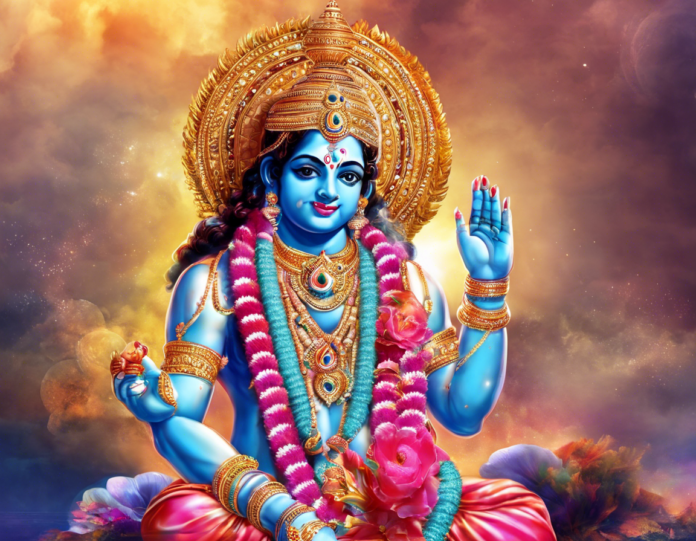Ekadashi is a significant observance in Hindu culture that falls on the 11th day of every lunar fortnight, according to the Hindu calendar. This day is dedicated to fasting, prayer, and reflection. Ekadashi holds great importance in Hinduism and is believed to be an auspicious day for spiritual practices. In this guide, we will delve into the dates and significance of Ekadashi in the year 2023.
Dates of Ekadashi in 2023:
Ekadashi occurs twice in a month, meaning there are twenty-four Ekadashi days in a year. In 2023, here are the Ekadashi dates:
- January:
- Pausha Putrada Ekadashi – January 6
-
Shattila Ekadashi – January 20
-
February:
- Jaya Ekadashi – February 4
-
Vijaya Ekadashi – February 18
-
March:
- Amalaki Ekadashi – March 6
-
Papmochani Ekadashi – March 20
-
April:
- Kamada Ekadashi – April 4
-
Varuthini Ekadashi – April 19
-
May:
- Mohini Ekadashi – May 3
-
Apara Ekadashi – May 18
-
June:
- Nirjala Ekadashi – June 1
-
Yogini Ekadashi – June 17
-
July:
- Devshayani Ekadashi – July 1
-
Kamika Ekadashi – July 17
-
August:
- Shravana Putrada Ekadashi – August 16
-
Aja Ekadashi – August 31
-
September:
- Parsva Ekadashi – September 14
-
Indira Ekadashi – September 30
-
October:
- Papankusha Ekadashi – October 14
- Rama Ekadashi – October 30
-
November:
- Utpanna Ekadashi – November 13
- Mokshada Ekadashi – November 29
-
December:
- Saphala Ekadashi – December 13
- Pausha Putrada Ekadashi – December 29
Significance of Ekadashi:
Ekadashi holds a special place in Hindu culture due to its spiritual significance. Here are some key points highlighting the importance of observing Ekadashi:
-
Spiritual Cleansing: Fasting on Ekadashi is believed to cleanse the body and soul, helping individuals attain spiritual growth and purification.
-
Seeking Blessings: Devotees observe Ekadashi to seek blessings from Lord Vishnu and fulfill their desires or seek redemption from past sins.
-
Detoxification: Fasting on Ekadashi aids in detoxifying the body, allowing it to rest from the regular digestive processes.
-
Increased Willpower: Observing the fast requires discipline and willpower, helping individuals strengthen their resolve and self-control.
-
Enhanced Focus: By abstaining from food and focusing on prayer and meditation, individuals can enhance their spiritual focus and connection with the divine.
How to Observe Ekadashi:
To observe Ekadashi, here are some traditional practices followed by devotees:
-
Fasting: Devotees abstain from consuming grains, beans, and certain vegetables on Ekadashi. Some may even refrain from water during the fasting period.
-
Prayer: Attend temples or perform puja at home, chanting Vishnu mantras and seeking his blessings.
-
Charity: It is customary to offer food or donations to the less fortunate on Ekadashi, promoting acts of kindness and generosity.
-
Self-reflection: Use this day to introspect, reflect on your actions, and set spiritual goals for personal growth.
Frequently Asked Questions (FAQs) about Ekadashi:
-
Q: Can I drink water during Ekadashi fasting?
A: Yes, you can drink water during Ekadashi fasting. However, some people prefer a strict fast without water as well. -
Q: Is it necessary to fast on Ekadashi?
A: Fasting on Ekadashi is not mandatory but is considered auspicious and beneficial for spiritual growth. -
Q: Can I eat fruits during Ekadashi fasting?
A: Yes, you can eat fruits during Ekadashi fasting as they are considered sattvic and light on the stomach. -
Q: Which foods are avoided on Ekadashi?
A: Grains, beans, and certain vegetables like onions and garlic are typically avoided during Ekadashi fasting. -
Q: Can pregnant women or individuals with health conditions observe Ekadashi fasting?
A: Pregnant women or individuals with health conditions should consult a healthcare provider before observing Ekadashi fasting to ensure it is safe for them. -
Q: How long does Ekadashi fasting last?
A: Ekadashi fasting typically lasts for 24 hours, from sunrise on Ekadashi day to the next day. -
Q: What is the significance of breaking the Ekadashi fast at a particular time?
A: Breaking the fast at the specific time known as ‘Parana’ is believed to enhance the benefits of fasting and avoid adverse effects. -
Q: Can children observe Ekadashi fasting?
A: Children are usually not expected to observe strict fasting on Ekadashi. Parents can encourage them to participate in simpler forms of fasting or rituals.
Ekadashi is not just a day of fasting but a day of spiritual significance and introspection. By observing Ekadashi, individuals can detoxify their body, purify their soul, and strengthen their connection with the divine. Embracing the traditions and practices associated with Ekadashi can lead to spiritual growth and introspection.












